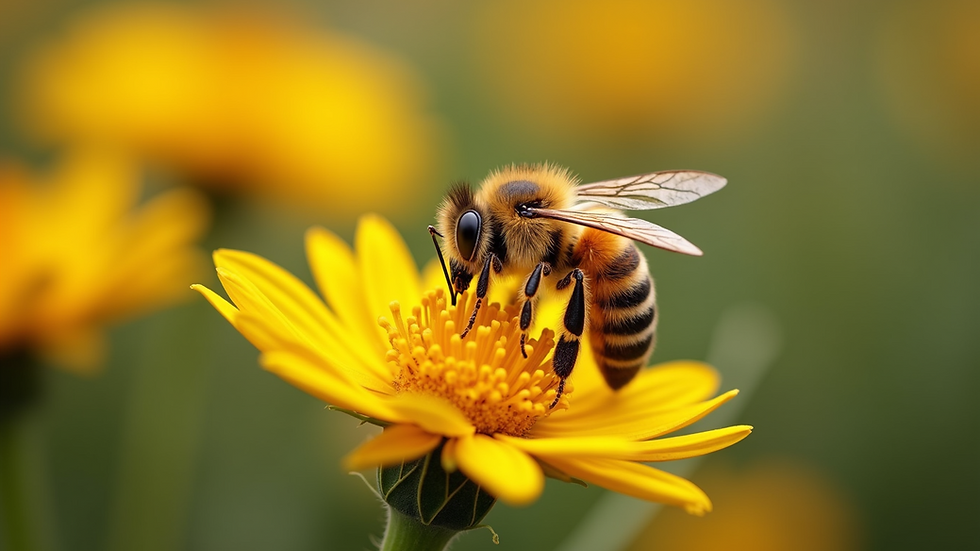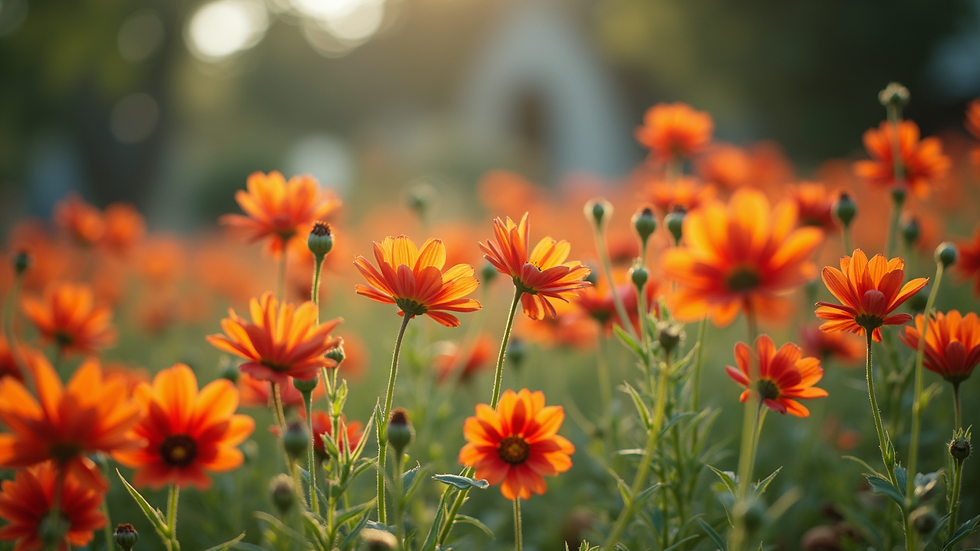The Vital Role of Pollinators in Food Production
- Lulu's Farm

- Aug 8, 2025
- 3 min read
Updated: Oct 8, 2025
Pollinators, such as bees, butterflies, birds, and bats, are crucial for many plants' reproduction. It is estimated that one out of every three bites of food we consume exists due to these tiny helpers. They facilitate the transfer of pollen, allowing fruits and seeds to form.
This process is not just vital for fruits and vegetables; pollination is also essential for the production of nuts, seeds, and grains. Crops like apples, almonds, blueberries, and cucumbers count on pollinators for their yields. The economic value of pollination services is staggering. For instance, honeybees alone contribute over $15 billion to U.S. agriculture each year.
How Pollinators Do Their Jobs
Pollinators are nature's diligent workers, moving from flower to flower to gather nectar and pollen. As they collect these resources, they unintentionally transfer pollen, supporting the reproductive processes of plants.
Bees, in particular, shine as efficient pollinators due to their specialized anatomy and behavior. For example, a honeybee's body is covered in tiny hairs that collect pollen grains. When a bee visits a flower, it brushes against the anthers, picking up these grains. As it moves to the next flower, some pollen is deposited on the stigma, leading to fertilization.
Interestingly, bees also demonstrate a behavior called "flower constancy." This means they prefer visiting the same type of flower during a foraging trip. This behavior increases the likelihood of successful pollination, as the pollen from the same species is often more compatible.

The Hurdles and Dangers They Face
Despite their critical role, bees and other pollinators face many challenges threatening their existence. Habitat loss is one major concern. Urbanization, agricultural expansion, and deforestation have substantially reduced the availability of food and nesting sites.
Moreover, the widespread use of pesticides poses a severe risk. Chemicals designed to control pests can also harm beneficial insects like bees, leading to population declines. Climate change adds another layer of complexity. For example, changing weather patterns can disrupt flowering plant timelines and pollinator life cycles.
Diseases and parasites, such as the Varroa mite, represent significant threats to bee populations. These mites attach themselves to bees and feed on their bodily fluids. This weakens the bees, making them more vulnerable to disease.
All these factors combined have caused alarming declines in pollinator populations globally, raising concerns about the future of our food supply.
What We Can Do to Help
While the hurdles facing bees and other pollinators are significant, there are several actions we can take to protect them and ensure they continue their essential work.
Plant Pollinator-Friendly Gardens: Cultivate a diverse garden filled with native plants that bloom at various times throughout the year. This ensures a continuous food supply for pollinators.
Avoid Pesticides: Reduce or eliminate chemicals in your garden. Opt for organic gardening techniques that favor natural pest control.
Provide Nesting Sites: Leave parts of your yard wild and undisturbed to create natural habitats for bees. Installing bee hotels can also offer nesting opportunities for solitary bees.
Support Local Farmers: Purchase fruits and vegetables from local farmers who use sustainable practices. This not only promotes biodiversity but also encourages pollinator-friendly farming methods.
Educate Others: Spread the word about the significance of pollinators to friends and family. The more people understand their importance, the more likely they are to take action to protect them.

The Path Forward
Bees and other pollinators serve as the silent guardians of our food supply. They play a vital role in producing many crops we rely on for sustenance. Their contributions are invaluable, yet they face numerous threats that endanger their survival.
By acknowledging their importance and taking proactive steps to protect them, we can create a healthier environment for pollinators. This will help ensure they can continue their essential duties—pollinating and sustaining our food systems.

Conclusion: Our Responsibility to Protect Pollinators
In conclusion, it is our responsibility to protect bees and other pollinators. Their survival is crucial for our food systems and the health of our ecosystems. By making small changes in our gardens and supporting sustainable practices, we can make a significant impact.
Let’s work together to ensure that these vital creatures continue to thrive. After all, a world without pollinators would be a world without many of the foods we love.
By taking action today, we can help secure a future where pollinators flourish. Together, we can create a sustainable environment that benefits both nature and humanity.




Comments